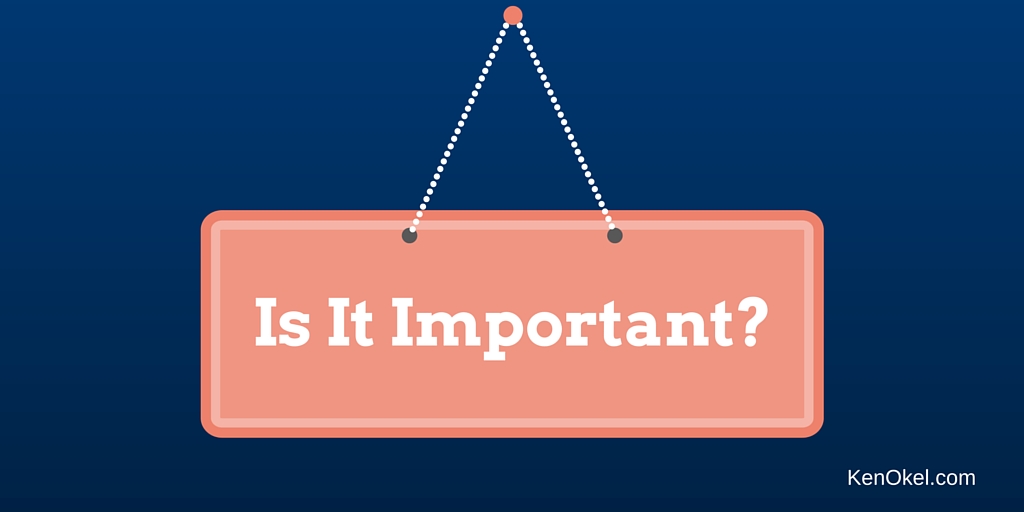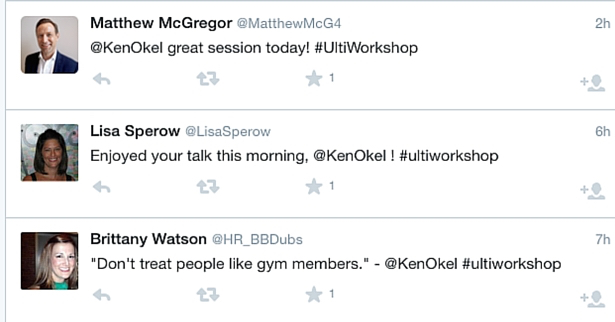 People like a to do list because it gives you a sense of structure and a roadmap during busy times. This can be good but sometimes you may get off track because you’re filling your list with things that are not really important.
People like a to do list because it gives you a sense of structure and a roadmap during busy times. This can be good but sometimes you may get off track because you’re filling your list with things that are not really important.
It’s very likely that you’re losing sleep over situations your customers don’t care about. If you don’t identify them, you’ll worry away a lot of your productive time.
When I was in the TV news, the big thing was making sure that your station had a breaking story first. Coming in second or third was a source of shame.
I remember watching coworkers, holding legal pads, standing in a panic in front of four TVs, watching and taking notes on all the simultaneous newscasts. They lived in fear of not having a story first.
This was perceived as the metric of success. If your station got beat, it was like the locker room after your team just lost the big game.
This is when reality often left the newsroom.
It was rare that one station really scooped the other. One might have covered the story better but usually everyone would have something on it. Even if your station was totally beat on a story, with a few frantic phone calls you could put a shortened version of the story on the air before the end of your newscast.
Another thing to consider was that only news people watch four or five stations at once. The people at home may have made their viewing choices based on nothing more than liking one of the anchors or a respective hair style.
Some would watch your newscast simply because they were too lazy to change the channel after the previous program ended. To them, the claim of having a story, “First,” was not going to change their viewing habits.
In today’s online world, having a story first continues to be a big deal. Do you, as a viewer care? Has it changed your viewing patterns and do you keep a scorecard at home? It it on your to do list?
A false sense of reality has been created in newsrooms. The pressure to break the story first has resulted in inaccurate reporting, where speed beats good journalism. That’s something that will ultimately cost you viewers.
We have an industry that is sweating bullets based on something it thinks is important but really isn’t. Sound familiar?
Does management at your company freak out if the competition under sells you by a few dollars or opens a few minutes earlier on Black Friday?
While these may be very visible differences, you need to step back and decide whether these are issues that really are important to your customers.
Too often, well thought out strategies are undermined in a panic. If you do this, you may be nothing more than a lemming happily running off a cliff.
Sometimes people will embrace these high stakes situations because it’s easier to believe in them, rather than consider a more serious need or problem.
Slow down, calm down, and decide what really matters in the long run. Put that on your to do list.







